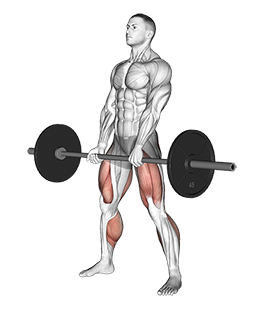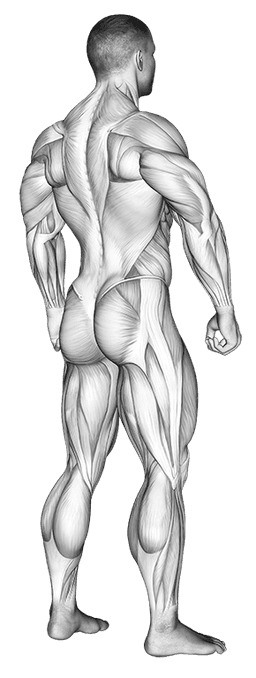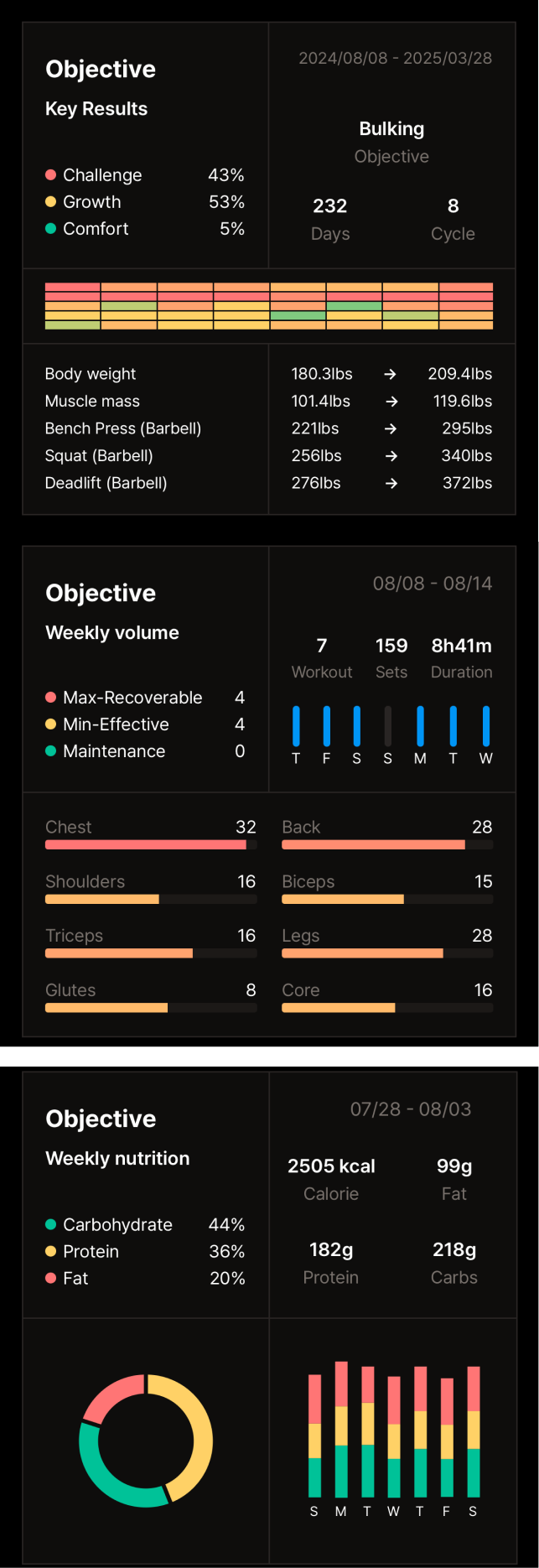
Sumo Deadlift (Barbell)
A variation of the conventional deadlift, emphasizing the glutes and inner thighs. The wider stance reduces stress on the lower back.
Muscle Targets Visualizer
Muscle Targeting Visualizer








Primary Muscle
Secondary Muscles
Strength Level Tracker
Track Your Progress Like a Pro
Sumo Deadlift (Barbell)
Average of all records in a cycle
Step-by-Step Instructions
1. Stance and Grip
Stand with feet wider than shoulder-width apart, toes pointed slightly outwards (around 30-45 degrees). Grip the barbell with an overhand or mixed grip, slightly outside shoulder width.
- Feet should be comfortably wide, adjust based on personal preference.
- Maintain a neutral spine and engaged core.
2. Initial Descent
Bend your knees and hips, keeping your back straight, to grasp the barbell. Your shins should lightly touch the bar.
- Focus on maintaining a flat back throughout.
- Keep your chest up and shoulders back.
3. Lift the Bar
Drive through your heels, keeping your back straight, to lift the barbell off the floor. Extend your hips and knees simultaneously.
- Think about pushing the floor away from you.
- Maintain a tight core to stabilize your spine.
4. Lockout
Stand tall with your hips and knees fully extended, maintaining a neutral spine. Hold the position briefly before slowly lowering the weight.
- Avoid hyperextending your back.
- Breathe out during the concentric (lifting) phase.
5. Controlled Descent
Slowly lower the barbell back to the floor, reversing the movement by bending your hips and knees while maintaining a flat back.
- Keep your chest up and shoulders back.
- Maintain control throughout the eccentric (lowering) phase.
Form Tips
✓Maintain a Neutral Spine
Avoid rounding your lower back by keeping your core engaged and your chest up.
✓Drive Through Your Heels
Initiate the lift by pushing the floor away with your heels, not your toes.
✓Keep Your Chest Up
Keep your chest lifted throughout the exercise, maintaining a vertical torso.
✓Proper Foot Placement
Experiment with foot placement to find the most comfortable and effective angle.
Common Mistakes
Rounding the lower back
Focus on maintaining a neutral spine by engaging your core and keeping your chest up.
Knees collapsing inwards
Focus on pushing your knees outwards, keeping them aligned with your toes.
Hips rising before the shoulders
Ensure your hips and shoulders rise simultaneously.
Not engaging the core
Engage your core throughout the entire movement to maintain a stable spine.
Using excessive weight
Start with a lighter weight and focus on proper form before gradually increasing the weight.
Alternative Exercises
- Conventional Deadlift
- Romanian Deadlift
- Deficit Deadlift
Complementary Exercises
- Squats
- Lunges
- Good Mornings

